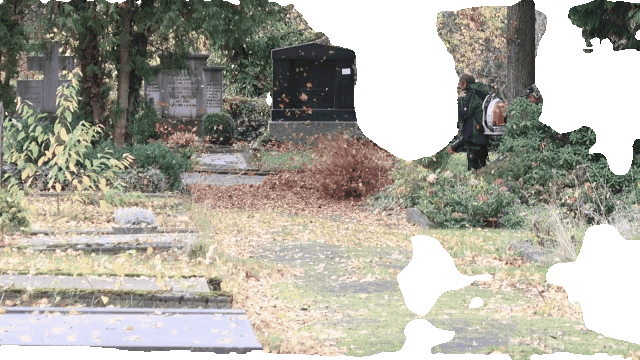Tºp•
Ide•
Lºgien
des (Un)Erreichbaren
(Arbeitsbericht aus dem dislozierten Seminar)
Die vorweggenommene Intention, sich den Orten sinnlich zu nähren und die Stad von innen zu betrachten, fehlte am Anfang. Zunächst verblieb das Seminar auf Distanz und digital. Wir kommunizierten disloziert zwischen Deutschland, Österreich, Schweden, Italien, Nord Mazedonien und Japan. Körperlose Wesen, die aus einer zerstreuten Geographie über Topo(ideo)logie diskutieren und manchmal auch rausflogen, wenn das Netzt zu stottern begann. Durchdrungen von Abwesenheit ereignete sich das topo(ideo)logische in Form von Ansammlung von Bildern, Wörtern und Gedanken. Aus der Unmöglichkeit eines physischen Treffens bzw. der Unerreichbarkeit des Zusammenseins entstand jedoch eine Reihe von Arbeiten und Projekten, die in unterschiedlichen Medien (Video, Audio-Walk, Performance, Installation und Foto-Essay) den Blick für die Schwellenräume schärfen. „Wir sind“, so Walter Benjamin in dem Passagenwerk: „sehr arm an Schwellenerfahrungen geworden.“ Als Übergangsorte markieren Schwellen Zäsuren im Raum-Zeit Kontinuum der neoliberalen Landschaft und ermöglichen dadurch Einblicke in die widersprüchliche Architektur gesellschaftlicher Verhältnisse, das Ausgeschlossene und das Unbewusste. Indem das Seminar einen „Ausbruch“ aus dem Raum der Theorie initiiert, mit dem Ziel eben die starren Grenzen zwischen Reflexion und Praxis zu verschieben, wurde es selbst zu einer Art angewandter „Schwellenkunde“ im Sinne Benjamins. Die Ausstellung Topologien des (un)erreichbaren (die sich aus dem Seminar entwickelt hat) generiert eine mediale, ortsspezifische Konstellation, die sich mit der ökonomisch-ideologischen Transformation urbaner Landschaft auseinandersetzt und dialektische Bilder hervorbringt. Diese schweben zwischen explizit politisch motivierten Aktionen, poetischer Reflexion am Rande des Rauschens und Verräumlichung von Spuren und Phantomen der Vergangenheit. Mit Arbeiten von: Nazanin Bahrami//Judith Bethke//Lisa Birkenbach//Melina Brinkmann//Eva Budniewski//Barbara Luci Carvalho//Talisa Frenschkowski//Yinfu Gao//Eva Grund//Lisa Horvath//Greta Klein//Simon Lenzen//Luka Schreckenberger//Jean-Noël Lenhard//Alica Müller//Tina Muffler//Gala Naseva//Ruth Süpple//Jannis Wulle.
topo to·po-, Top-, Topo-, top-
Präfix
(Bestimmungswort in Zusammensetzungen mit der Bedeutung) Ort, Stelle, Gegend, Gebäude (z. B. topografisch, Topologie, Toponymik)
Ideologie Ideo·lo·gie /Ideologié/
Substantiv, feminin [die]
1. an eine soziale Gruppe, eine Kultur o. Ä. gebundenes System von Weltanschauungen, Grundeinstellungen und Wertungen
"eine bürgerliche, demokratische Ideologie"
2. politische Theorie, in der Ideen (2) der Erreichung politischer und wirtschaftlicher Ziele dienen (besonders in totalitären Systemen)
"eine faschistische, kommunistische Ideologie"




Installation von die sonne ist von kupfer
Eva Budniewski
the right to have rights
von Nazanin Bahrami



the letter to the embassy
De-Noise my Life!
von Jannis Wulle
Das Übersehen so sichtbar
von Ruth Süpple
Sie hören: Harmonie FM, Vogelgezwitscher, Straßenverkehr, Gespräche über Verdrängungspolitik, Straßenszene, Schach, Monopoly, Gartenbau, Fensterreinigung, wetterfeste Schränke und Barrierefreiheit.
Eine Mischung aus Small Talk und Fachsimpelei über Erinnerungen des Privaten und Öffentlichen.
Dauer: 35 Minuten
Postproduktion und Sounddesign: Jannis Wulle
Interviewer*in: Ruth Süpple
Interviewte: Ute Loh (Sozialarbeiterin) Sarah Siodlazek (Sozialarbeiterin) Gertrud Monninger-Wolff (Sozialarbeiterin) Rainer und Jörg (Bewohner der Little Homes)
Eine Produktion von Ruth Süpple, im Rahmen des Seminars „Topoideologien, Ortsspezifische Aufführungen und agonistischer Raum“ unter Leitung von Andrej Mircev. Vielen Dank an die interviewten Sozialarbeiterinnen des diakonischen Werks die Brücke in Gießen.
Safe spaces: Horticulture’s ascent amid a pandemic
von Gala Naseva

WE TRIED TO MESSAGE THE DEAD FIRST, BUT THEY WERE GHOSTING US. 10 VOICE MESSAGES 给 LEBENDE UND TOTE
von Yinfu Gao, Jannis Wulle und Judith Bethke
an audiowalk around the graveyard consisting of voice messages in order to communicate - or trying to communicate - with both the living and the dead
HOW TO DO:
-
DOWNLOAD all 11 audio files on your phone or audio device of your choice.
-
GO to the graveyard “Neuer Friedhof Gießen” or any graveyard of your choice.
-
LISTEN to the “Intro” first. Then feel free to listen to the other audios in an order of your choice, to not do a task if you don’t feel like it, to not listen to all of the audios, to take a break, to choose your own walking speed and to take off your headphones whenever you feel like it. Respect the hygiene rules and possibly mourning people.
Bilder von
No(w)hereland
von Tina Muffler

Beteiligte/Participants:
Nazanin Bahrami, Judith Bethke, Lisa Birkenbach, Melina Brinkmann, Eva Budniewski, Barbara Luci Carvalhol, Talisa Frenschkowski, Yinfu Gao, Eva Grund, Lisa Horvath,
Greta Klein, Simon Lenzen, Luka Modu, Jean-Noël Lenhard, Alica Müller,
Tina Muffler, Gala Naseva, Ruth Süpple, Jannis Wulle, Andrej Mirčev








